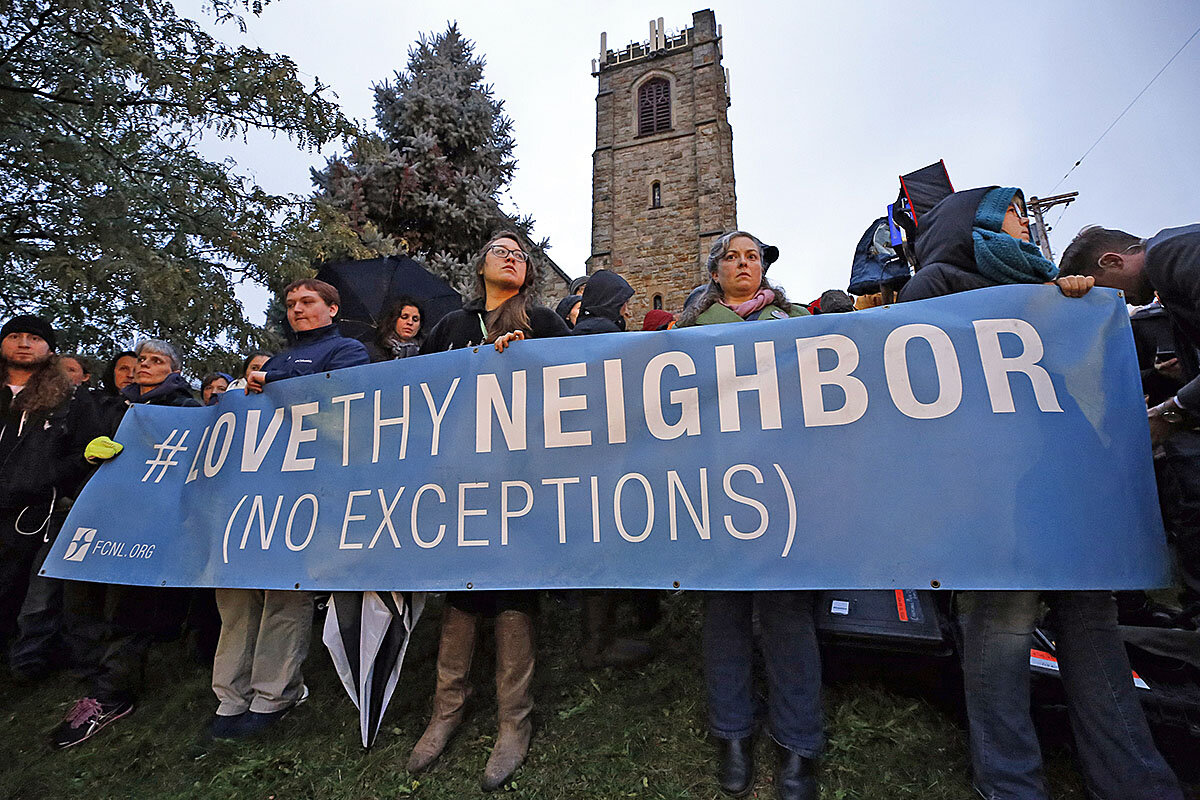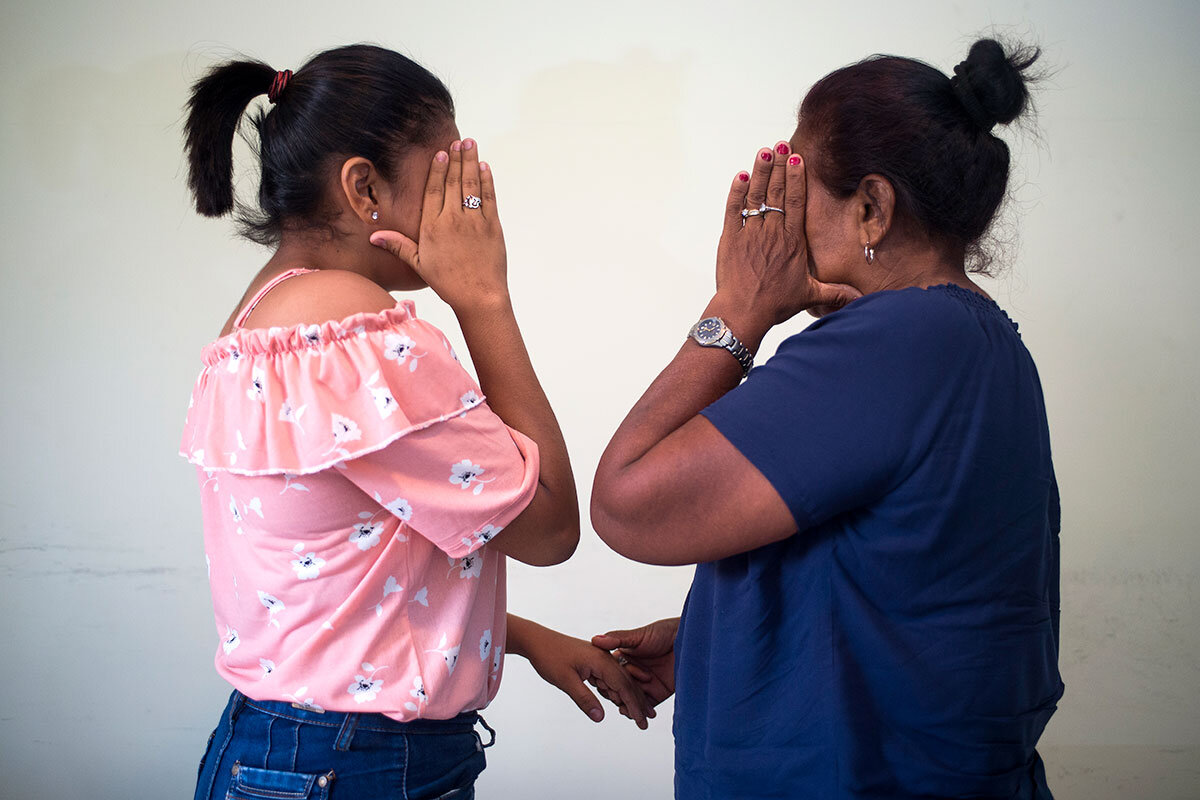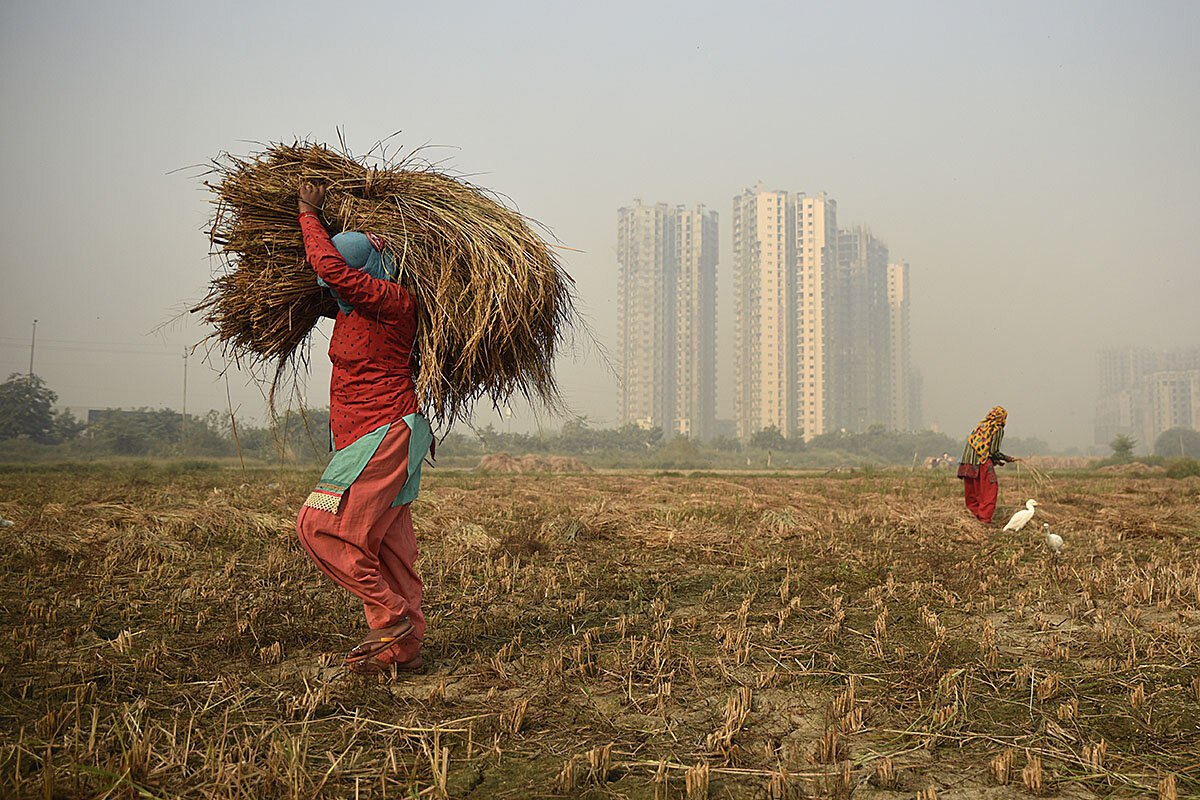��
As they trek together toward the United States, a few thousand migrants from Central America could end up doing more than pose a crisis at the border. The mass exodus has the potential to build a better partnership between the US and Mexico in addressing the “push factors” that drive such people to leave home.
To be sure, part of any new US-Mexican coordination should include enhanced enforcement of immigration laws as well as adherence to treaties regarding refugees. The US is justified in seeking to keep its border from being overwhelmed by unregulated flows of people. Yet a long-lasting solution must include incentives for people in the three Northern Triangle countries (Guatemala, Honduras, and El Salvador) to not take such a perilous journey.
Media coverage of the migrant caravan makes clear that the vast majority are poor and merely seek a better life. They are not criminals or terrorists. Some may qualify as refugees if they can prove persecution or violent threats back home. Already, both the current president of Mexico as well as the incoming one have magnanimously offered to support the migrants who want to stay and work in Mexico.
Mexican leaders are searching for a constructive path that balances US demands to stop the caravan, popular sympathy among Mexicans for the Central Americans’ plight, their country’s migrant-friendly laws, and Mexico’s limited capacities to manage and care for migrants.
This intense political moment provides a chance to build a new regional consensus.
The incoming president, Andrés Manuel López Obrador, who will be sworn in Dec. 1, has been an advocate for protecting migrants’ rights and using job creation to reduce migration and crime. In a July letter to President Trump and a phone call this month, he pushed for joint development in both Central America and Mexico that would address poverty and border security.
On Friday, outgoing President Enrique Peña Nieto announced a program offering the migrants temporary identification documents, jobs, and education for their children, if they register for asylum to stay in southern Mexico. Some 1,700 have already sought asylum, according to Mexican officials. Officials will certainly encourage more to accept the offer.
In the past five years, the US has increased its aid to Central America. But it will take sustained and substantial money to diminish the migration flow. The US has not yet explored a well-regulated temporary worker program for Central Americans, which could bring income to their impoverished communities while meeting the need for low-skilled labor in certain US sectors. Canada and Mexico already run a successful temporary worker program which could be a model.
At present there is insufficient capacity in Central America and Mexico to address the legitimate claims of individuals to be refugees fleeing persecution. Recognizing this, the government of Mexico invited the United Nations High Commissioner for Refugees to help individuals in the current caravan.
Over the past decade, views in Mexico toward immigration have evolved as more Mexicans returned from the US than sought to migrate there. Mexico now understands it must effectively control its border or manage entering migrants. One big reason: to reduce organized crime, which makes more than $1 billion a year from migration, according to some estimates.
Mexican authorities steadily deepened cooperation with the US along their common border. In the south, they have only started to strengthen feeble management of the border. One sign of this shift is that Mexico has sent home some 500,000 Central Americans who entered without proper documentation.
Mr. Trump’s plans to bolster border security hardly begin to address the core issues. A far better move would be solutions that improve long-term cooperation with a Mexico that wants to become a better partner.��











